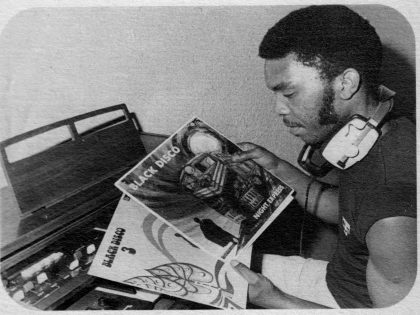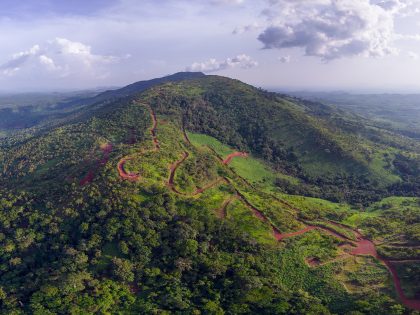Further Reading

Cédric Bakambu’s gesture
How the Congolese national team has become a rare source of unity, recognition, and solidarity for communities living through war.

Three footballers walk into a stadium
What the presence of an unlikely trio of football icons at AFCON tells us about migration, African identity, and the histories that continue to shape the modern game

The Senegalese paradox
How Senegal rose to become one of the most fertile grounds in African football, and why this success still struggles to transform the local football economy.

Le paradoxe sénégalais
Comment le Sénégal est-il devenu l’un des viviers les plus prolifiques du football africain, et pourquoi ce succès peine-t-il encore à transformer l’économie du football local.

Sounds of the Africa Cup of Nations
What it sounds like on the ground in Morocco at the 2025 edition of Africa Cup of Nations.

AFCON and the politics of Africanhood
In Morocco, football has become a site for the slow re-Africanization of the country’s national identity.

The myth of Nigerian football exceptionalism
The Super Eagles don’t suffer from a shortage of talent, but represent a country unwilling to admit that greatness is not a birthright.

Salah in isolation
Distanced at club level, and scrutinized at home, there is no player with more to prove at this Africa Cup of Nations than Mohamed Salah.

The boys are back in town
Bafana Bafana’s resurgence has been forged where South African football always lives—between brilliance and the bizarre.

A giant chance
An African Cup of Nations at home for red hot Morocco is a chance to put past trauma aside and charge on to the world stage.

On the pitch
This year, instead of taking a publishing break, we will be covering the African Cup of Nations. To transition, we consider why football still matters in an era of enclosure, mediated presence, and thinning publics.

What does a museum mean here?
A dispatch from Benin City tells the unfinished story of the Museum of West African Art.

Has digital feminism peaked?
The scandal around Ezra Olubi has exposed the contradictions of Nigeria’s middle-class, online feminism.

Mapping Johannesburg’s wounds
In his latest exhibition, Khanya Zibaya charts the psychic and spatial terrain of a city where homelessness, decay, and human resilience sit uneasily together.

The missing voices of Western Sahara
At the UN’s annual Western Sahara debate, everyone gets heard except the Sahrawis themselves.

Whose museum is it anyway?
The dispute over Benin City’s museum project shows that returning stolen art does not settle the question of ownership.

Minnesota was promised to us
Somalis have answered Trump’s latest racist tirade not with outrage but with a tidal wave of trolling.

The golden light of Pops Mohamed
From Actonville to global stages, Pops Mohamed blended tradition, futurism, and faith—leaving behind a musical archive as luminous as the spirit he carried.

Pints and powerpoints
From IMF history to astrophysics, Nairobi’s Drunken Lectures turn casual drinkers into an engaged public.

Guinea’s bet on iron ore
A $20 billion iron ore mega-project is reshaping Guinea’s economy and politics, but communities in Simandou say they still lack water, electricity, and accountability.